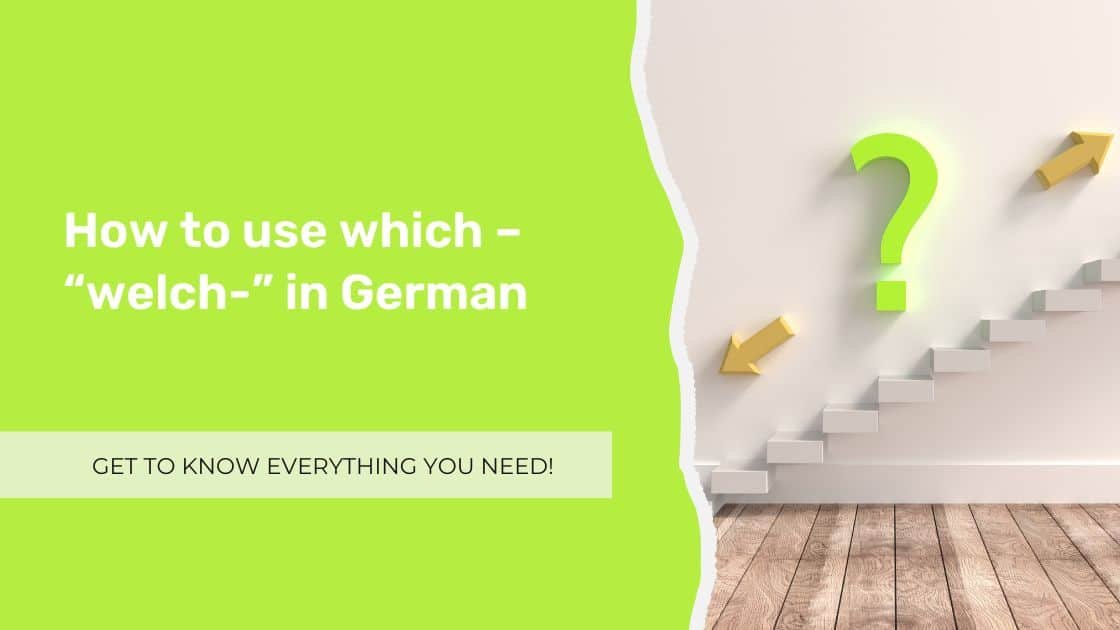How to Effectively Use German Question Words (W-Questions)
Learning how to ask questions in German is one of the most essential skills for anyone starting to study the language. Whether you're trying to navigate conversations, understand others, or simply satisfy your curiosity, mastering German question words will give you the confidence to engage with native speakers. This article will provide a comprehensive guide on everything you need to know to form correct sentences using German question words.
Recommended study materials on the topic:
A-Grammar: Practice German grammar (incl. answers)
German self-study book for A1-B1 (incl. answers)
________________________
Understanding German Question Words
Before we start with the questions, it is crucial to understand the meaning and function of question words. You should be aware that using them will always make your question become an open question (also referred to as an interrogative question). For instance, if somebody asks you: “Was sind deine Hobbies?” (What are your hobbies?), you could answer a million different things. This type of question requires more than a simple 'yes' or 'no' response, making it an open-ended question. In contrast to that, you could only answer “ja” or “nein” to a closed question like “Spielst du gern Fußball?” (Do you like to play soccer?) that does not use any question words.
The Importance of German Question Words (W-Fragen)
In German, all common question words start with the letter “W,” and therefore, they are also known as “W-Fragen” (W-Questions). A well-known song from Sesame Street uses many German question words and contains the famous line: “Wer, wie, was, wieso, weshalb, warum? Wer nicht fragt bleibt dumm!” (Who, how, what, why, for what reason, why? Who doesn't ask, remains dumb!) You should not miss out on this classic. It’s a fun and memorable way to familiarize yourself with these essential words. In the following, you can find the most common question words and their English translation.
Support my free blog content with a kind donation. Thank you!
Below is a list of essential German question words that you will encounter regularly. Memorizing these will significantly improve your ability to ask and understand questions in German.
Frequently used German question words:
| German | English |
| wer | who |
| wie | how |
| was | what |
| warum / weshalb / wieso | why |
| wo | where |
| woher | from where |
| wohin | to where |
| wie lange | how long |
| wen | whom |
| wem | to whom |
| welche | which |
| wessen | whose |
| wie viel / wie viele | how much / how many |
How to Form Sentences with German Question Words
The structure of an elementary sentence in German is typically Subject + Verb + Object. However, one of the unique aspects of German syntax is its flexibility. Thanks to German cases like Accusative and Dative, you can easily start your sentence with the object, and native Germans often do this to emphasize different parts of the sentence. However, whether you start your sentence with the Subject (Nominative case) or not, your verb will stay in the second position. This rule applies consistently, even when forming questions using a question word.
For example:
(Peter has a vacation. → Who has vacation?)
Ihr schreibt einen Test. → Was schreibt ihr?
(You write a test. → What do you write?)
In der Küche kochtJan eine Suppe. → Wo kocht Jan eine Suppe?
(Jan cooks soup in the kitchen. → Where does Jan cook soup?)
Remember: In German, question words start with "w," and the verb stays in the second position when forming a question.
Additional Tips for Forming Questions in German
To enhance your understanding of German question words, try practicing by forming questions based on everyday situations. Consider how you would ask about someone’s day, their preferences, or their experiences. Additionally, it can be helpful to listen to native German speakers or watch German-language media to see how these question words are used in real conversations.
You might also find it useful to explore related articles, such as "How to Properly React to Small Talk in German," to learn more about conversational German.
Forming questions in German
As you could hopefully see in this article, forming questions using a question word in German is not too complicated. By mastering these question words, you will enhance your conversational skills and deepen your understanding of the German language. Keep practicing, and soon asking questions in German will become second nature. Check out also how to properly react to small talk!
Bis bald!
Steffie
Hi there! Though I provide all blog content for free, your support will be very much appreciated. 🙂
Related Posts
Hi there, I'm Stefanie, the author of the blog post you're reading.
Please support my work!
Search blog



Discover when & how to use "es gibt" in German like a native speaker. Boost your language skills with this easy-to-follow guide!